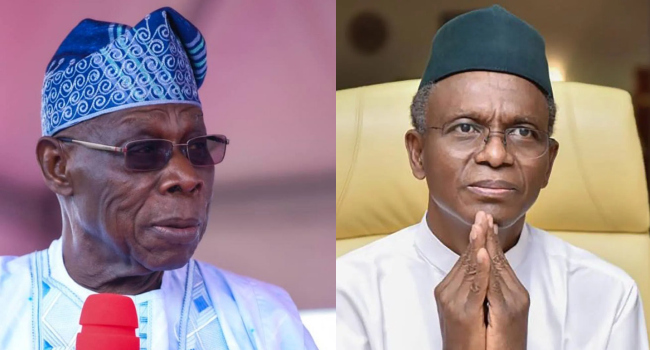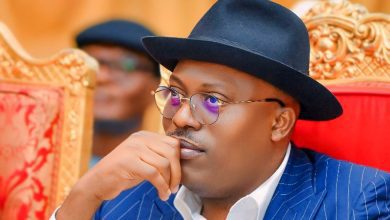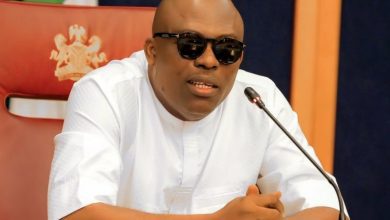
Obasanjo’s opinion was that the former Kaduna governor had not yet matured enough to take on the leadership of Nigeria back in 2007.
Former President Olusegun Obasanjo revealed that he rejected a proposal to have Nasir El-Rufai, the then-Minister of the Federal Capital Territory, succeed him at the end of his administration in 2007.
Speaking at the second edition of the Ajibosin Platform Annual Symposium in Abeokuta, Obasanjo disclosed that he declined the recommendation because he believed El-Rufai, who had served under him as both Director-General of the Bureau of Public Enterprises (BPE) and later FCT Minister, was “not yet mature enough” to handle the complexities of leading a country like Nigeria.
The Discussion Involving Osita Chidoka
The former president’s disclosure was made on Friday during the symposium, following a keynote address by former Minister of Aviation, Osita Chidoka. Chidoka had recounted an experience where El-Rufai introduced him to Obasanjo at the age of 34, an encounter that ultimately led to Chidoka’s appointment as Corps Marshal of the Federal Road Safety Corps (FRSC).
Midway through Chidoka’s speech, Obasanjo interjected, adding a forgotten part of the story. With a smile, Obasanjo said, “He didn’t mention that when I was leaving government, he was pushing that his friend, El-Rufai, should be brought in as my successor.” He then confirmed with Chidoka, “No be so?” to which the former aviation minister reportedly nodded in agreement.
Obasanjo continued by sharing the subsequent conversation: “I did not yield to the pressure. Later, he asked why I didn’t agree, and I told him El-Rufai needed to mature.” Obasanjo noted that many years later, after observing El-Rufai’s performance, Chidoka revisited the issue and told him, “You were absolutely correct — El-Rufai needed to mature.”
The former president did commend both men and other members of his team, describing them as “individuals with special attributes” who significantly contributed to the success of his administration between 1999 and 2007.
Observations on Leadership and Governance
Shifting to the broader theme of leadership, Obasanjo stressed the importance of character, exposure, experience, and training in public service. He specifically criticized the field of politics for its lack of structure, noting, “It’s only in politics that I found out there is no training for leadership… That’s not good enough.”
In his keynote address, Osita Chidoka focused on institutional failure as the root of Nigeria’s enduring problems. He argued that the nation’s challenges do not stem from a lack of ideas, but from the failure to build systems and institutions that guarantee accountability and continuity.
Chidoka stated that leadership’s true measure lies “not in speeches or charisma, but in the systems it leaves behind.” He insisted that moral conviction must be translated into the practical machinery of governance—rules, routines, and institutions that foster competence and impede corruption.
According to Chidoka, “Nigeria’s problem has never been the absence of ideas; it is the absence of systems strong enough to outlive their authors.” He called for a stronger framework to measure governance performance based on tangible results rather than rhetoric, proposing the establishment of national dashboards and accountability systems to track government promises, budgets, and outcomes. He concluded that institutions evaluating government performance must be empowered to expose complacency.






